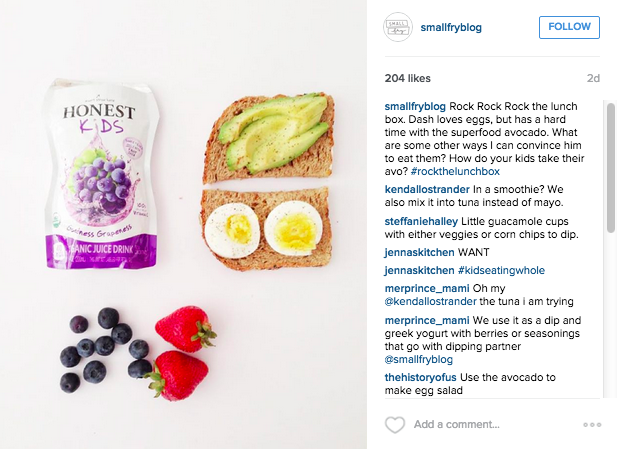It’s 2015, and we’re still seeing posts like this:

Big deal, you say. Seems like a perfectly innocuous Instagram post by an “influencer” to me, right?
Let’s look a little closer. While this post doesn’t seem to clearly be affiliated with a sponsor or brand, what about this one?

Now, I can’t say this influencer is getting paid for this post. But the signs lead me to believe otherwise:
- The same images show up in both posts. Curious.
- The influencer calls out @Applegate by name. Curious.
- Both posts include the same Honest Kids drink.
Now, those could be coincidences. Maybe this influencer is just really excited about kids lunches and likes calling out brands by name.
But I’m not buying it.
I think this influencer is getting paid for these posts.
And, they’re not disclosing.
She’s hardly alone.
Here’s another example.

More red flags:
- Um, you can see the Chevy folks (presumably) taking video of her in one of the shots!
- Using #grateful in the post – wonder what you’re grateful for!
And one last example:

More red flags:
- Again, the influencer uses the brand handle. Curious.
- The influencer also calls out the product by its exact name. Curious.
Now again, could be a coincidence. But again, I highly doubt it.
Another influencer post. Another failure to disclose.
It’s all too common. And, as much as the influencers are at fault, it’s the brands that are going to be financially penalized if they’re caught.
In case you didn’t notice the FTC recently amended its FAQ page earlier this year to include a slew of common questions and answers. The message: You’re on notice, brand folks.
So, what’s a brand marketer to do?
Let’s use the following example and assume you were the marketer working for @Candelles below.

First, make sure to be clear about disclosures from the very beginning.
Once you consummate the relationship financially, that’s a good time to start discussing disclosures with an influencer.
Remember, disclosure doesn’t have to be complicated.
In this case, a simple #Sponsored would have done the trick in this post. Other options: #ad #partnership #parter #client
Make sure you make your request to the influencer in writing.
Get it in an email. Get it in multiple emails. And make sure you save those emails. That’s your paper trail if the FTC comes calling.
Don’t just ask–follow up with the influencer
It’s not just enough to get your request in writing to the influencer (although that’s a damn good start). Follow up and ask the influencer to disclose. In this case, I would have sent an email the second after I saw this post to the influencer, asking them to amend the post to include #Sponsor somewhere in it.
This article was syndicated from Business 2 Community: Why Are Influencers Still Not Disclosing Paid Relationship? (And Why Brands Should Really Care)
More Sales & Marketing articles from Business 2 Community:





